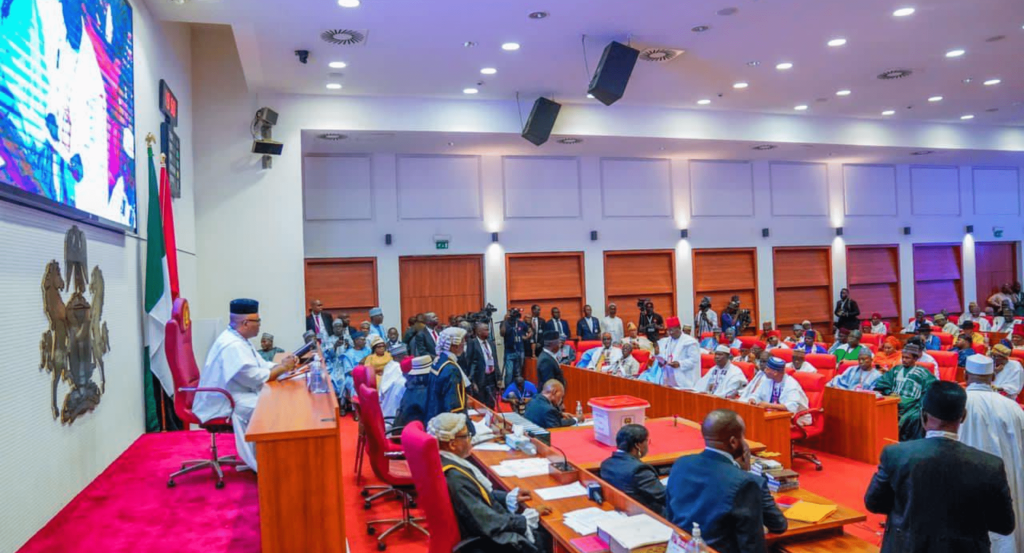The Federal Government has officially terminated its contract with Julius Berger Nigeria PLC for the construction of the Abuja-Kaduna road, citing non-performance as the primary reason for the decision. The $1.5 billion (N740 billion) project has faced numerous delays, prompting growing criticism from the public over the deteriorating state of the major highway.
This decision marks a significant move by the FG to address the long-standing issue of poor infrastructure along the Abuja-Kaduna route, which has seen minimal progress despite substantial budget allocations. The termination also raises questions about project oversight, accountability, and the future of public-private partnerships in Nigeria’s infrastructure sector.
FG’s Statement on Termination
Minister of Works, Senator David Umahi, announced the termination at a press conference, stressing the FG’s commitment to ensuring that infrastructure projects are completed on time and up to standard. “This decision was not taken lightly. Julius Berger has failed to meet the project’s requirements and timelines despite repeated warnings,” Umahi stated. “The government cannot continue to spend taxpayers’ money on projects that do not deliver results. We will explore alternative contractors to complete the road construction promptly.”
Justification for Contract Termination
The decision followed a review of project timelines and quality assessments, which reportedly found serious lapses in the contractor’s adherence to standards and progress milestones. The FG had previously issued several warnings to Julius Berger regarding delays, noting that the current state of the road posed severe security and safety risks to motorists. The FG also cited rising complaints from commuters, who have faced prolonged traffic congestion, high fuel costs, and increased security concerns due to the poor road conditions.
Senator Umahi explained that Julius Berger’s failure to achieve expected progress not only endangered travelers but also represented a breach of the original contract terms. “It is disappointing, given the trust we placed in Julius Berger, that the expected level of commitment and efficiency was not met. The Abuja-Kaduna road is a crucial economic route, and we must prioritize the safety and mobility of Nigerians,” he emphasized.
Reaction from Julius Berger Nigeria PLC
In response, Julius Berger expressed disappointment over the termination and promised to review the FG’s claims. “We have executed numerous landmark projects in Nigeria over several decades. We aim to resolve this matter and address the government’s concerns constructively,” the company said in a statement. Julius Berger also cited challenges in material supply chains and security issues as factors affecting the project’s pace.
Public and Stakeholder Reactions
The termination has sparked varied reactions from stakeholders and the general public. Civil society groups and transport unions have widely supported the FG’s move, with many pointing to the project’s slow pace as detrimental to the economy. Speaking on the matter, John Oladipo, President of the Nigeria Transport Workers’ Association, stated, “We are relieved that the government is taking action. Our members have suffered due to the poor condition of the road. We hope that a more reliable contractor will take over to ensure the road’s quick completion.”
Critics, however, have raised concerns about how long it will take to replace Julius Berger and resume work on the road. Professor Eze Amaechi, an expert in public infrastructure, expressed caution, saying, “While it’s commendable to demand accountability, we must ensure that this decision doesn’t delay the project further. The Abuja-Kaduna road is a vital artery, and any further disruptions could be detrimental to our economy.”
Looking Forward
The FG has announced plans to open a new bidding process for the project’s continuation, with a focus on selecting a contractor capable of delivering within the stipulated time frame. The Ministry of Works emphasized that the next contractor would be expected to comply strictly with project deadlines and quality standards. According to officials, the bidding process will prioritize contractors with proven records in handling large-scale infrastructure projects in challenging conditions.
As the FG begins the search for a new contractor, commuters and stakeholders alike hope that this decision will result in quicker progress and the eventual completion of a road that is essential to Nigeria’s economy and national connectivity.



























